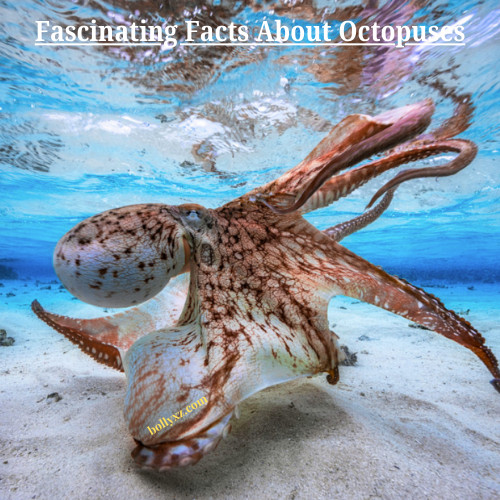Even so, the octopus- a creature of interest to researchers- is endowed with intelligence, fascinating biochemistry, and striking adaptations. These creatures, fascinating cephalopods, warrant a more extended consideration.
Octopuses are cephalopods, comprising squids, cuttlefish, and nautiluses. Characterized by their soft bodies, eight arms armed with suckers, and a distinct head, the adult has a bulky cranium and mantle housing the organs. Octopuses, unlike several marine animals, possess no hard shell, thus enabling them to squeeze through tight places.
Key Point: It is highly flexible in its body structure to escape from a predator and explore the surroundings.
Some of the most intelligent invertebrates, octopuses have complex behaviors, which include problem-solving and tool use. In laboratory environments, it has even been noted that octopuses unscrew jar lids to get food; this advanced cognition surely is remarkable.
Key Point: Intelligence scholars attribute this unique characteristic to the great number of neurons within the arms of these octopuses, enabling each arm to act somewhat independently of others to control or want other tasks to be undertaken.
Octopuses Main Feature:-
One of the most amazing characteristics of an octopus is its ability to change its color and texture. The chromatophores are special skin cells that can color-alter. Its changing colors enable the octopus to hide in plain sight from any predator. Their adaptive talents are equally applied to several facets of their daily living, including in courtship and the communication of desire.
Key Point: In milliseconds, octopuses can modify their externals for self-defense or the modulation of their moods or intentions.
Octopuses have rather a unique way of passing through water. Octopuses can crawl across the seafloor with their arms alternatively to swim radically by expelling the water from their body through a siphon. This is how they not only escape predators but also explore their environment quickly and efficiently.
Handsome and multi-toed, an octopus rotates about to stand on its opposite side; quite a lucky place beneath the moon. As they scuttle through in search of prey, some hold their tentacles very rigid. Quite a number will still stay hidden most of the time hiding in rocks; Andrea or Jessica of the praying-mantis genus are a few more to be extensive while many put on camel colors to blend into dark substrates.
Regeneration is another ability that stacks up in favor of octopuses as it allows them to hunt or defend themselves through lost or damaged appendages.
Carnivorous octopuses open their menu with crustaceans, fish, and mollusks. They improve as hunters through the use of intelligence, skill, or dexterity, entailing some to use camouflage-like setups in dressing their unsuspecting victims in ambush or dislodge an enemy from its hiding place using a jet of water.
These traits express the adaptability and cleverness which have allowed octopuses to survive in a variety of marine settings.
An octopus’s lifetime varies with its species, from only one to three years on average, except for larger species that live longer, as few would. Notably, the reproductive strategies of an octopus are both unique and altogether extreme: thousands of eggs are laid by the female, which she guards and cares for, often refusing food until the hatchlings are released. The scale ends with the mother’s demise, post-hatching.
This approach illustrates intense investment concerns concerning the later generation, which relate ostensibly to species longevity.
Apart from camouflage, octopuses have several other ways of defense. Once threatened, octopuses release a huge cloud of dark ink into the water that effectively obscures the vision of the attacking predator, letting them slip away in their escape. A further illustration to avoid being eaten is their phenomenal ability to also impersonate other marine animals.
These additions showcase the evolutional adaptations of these cephalopods to survive in an environment heavy on predators.

